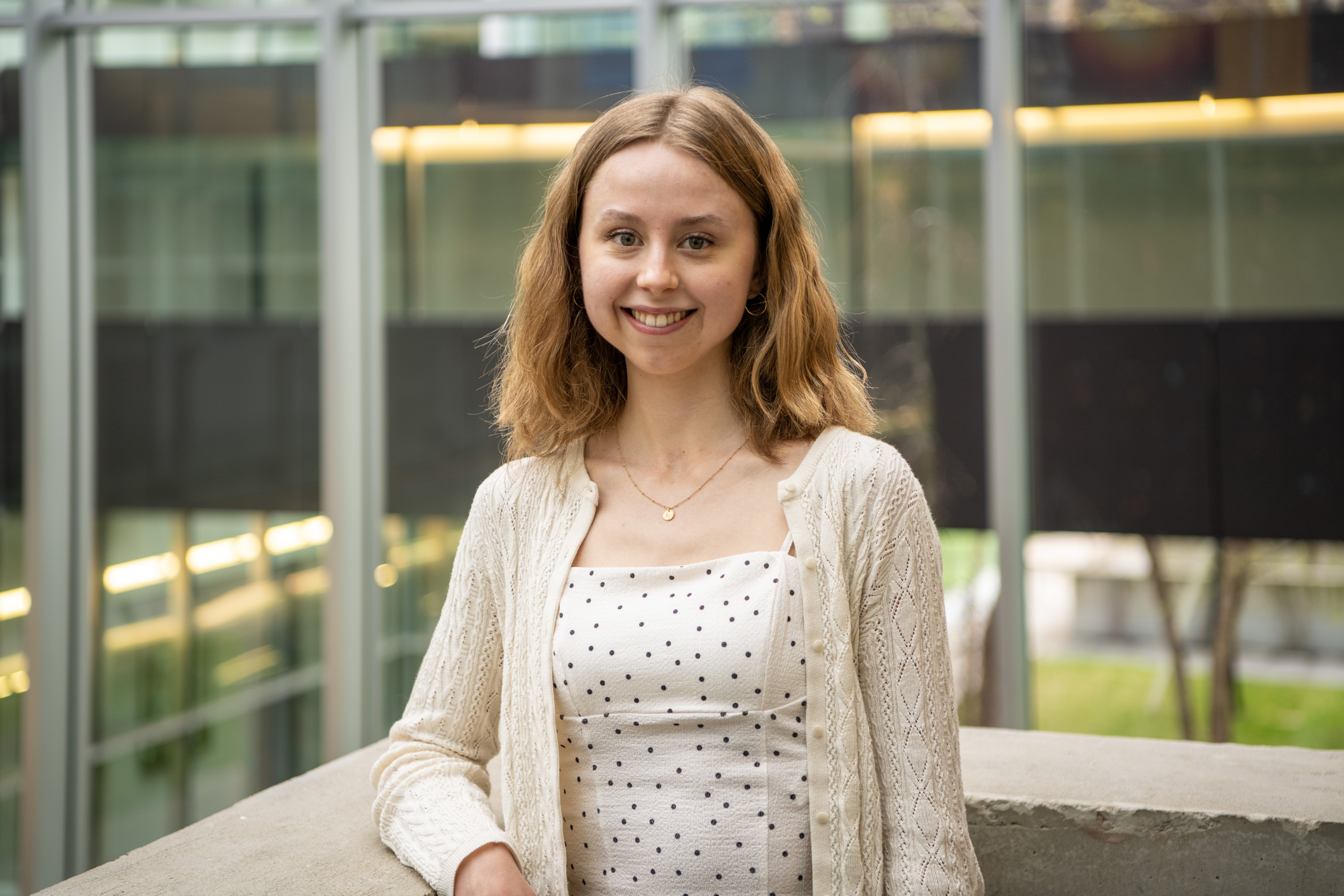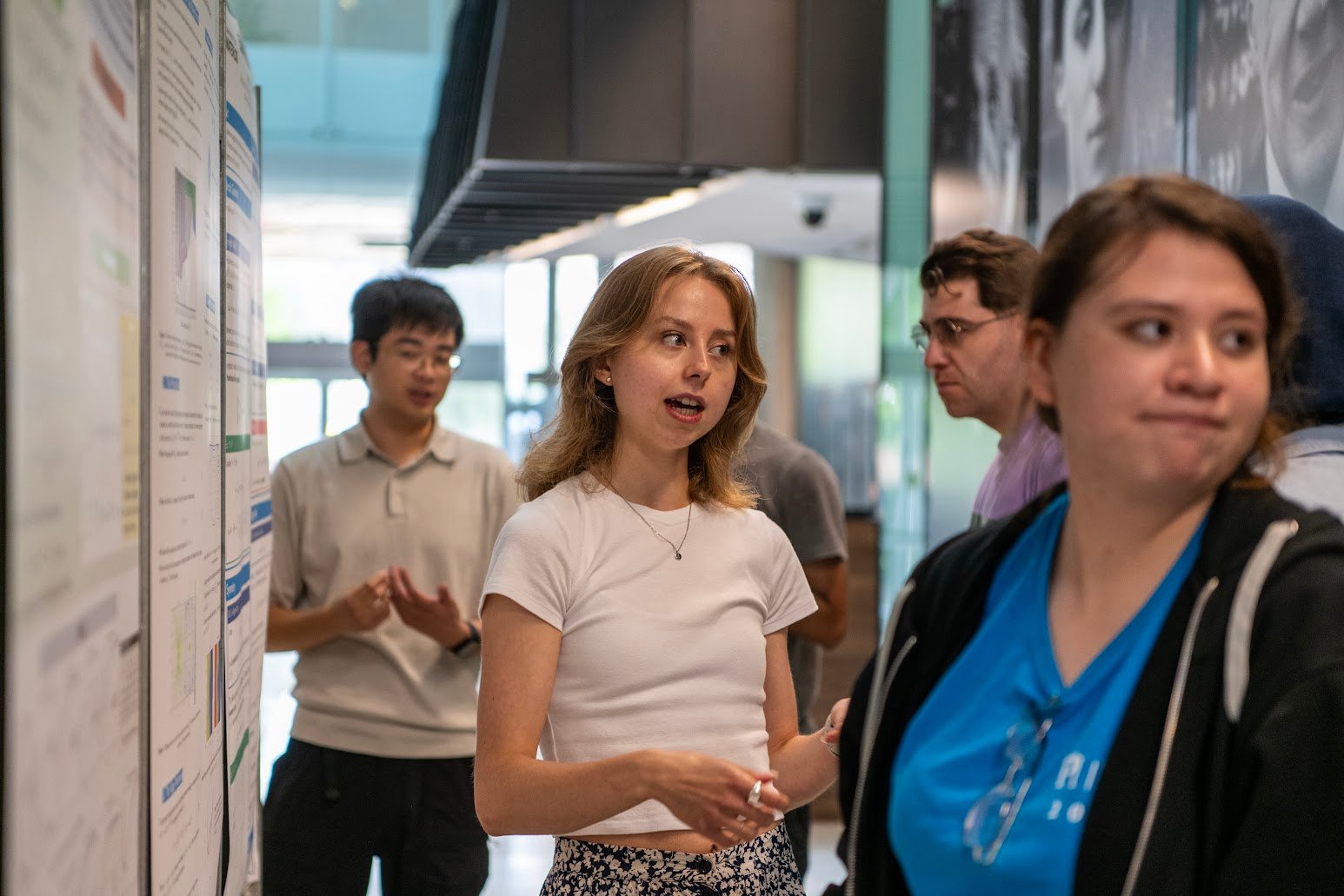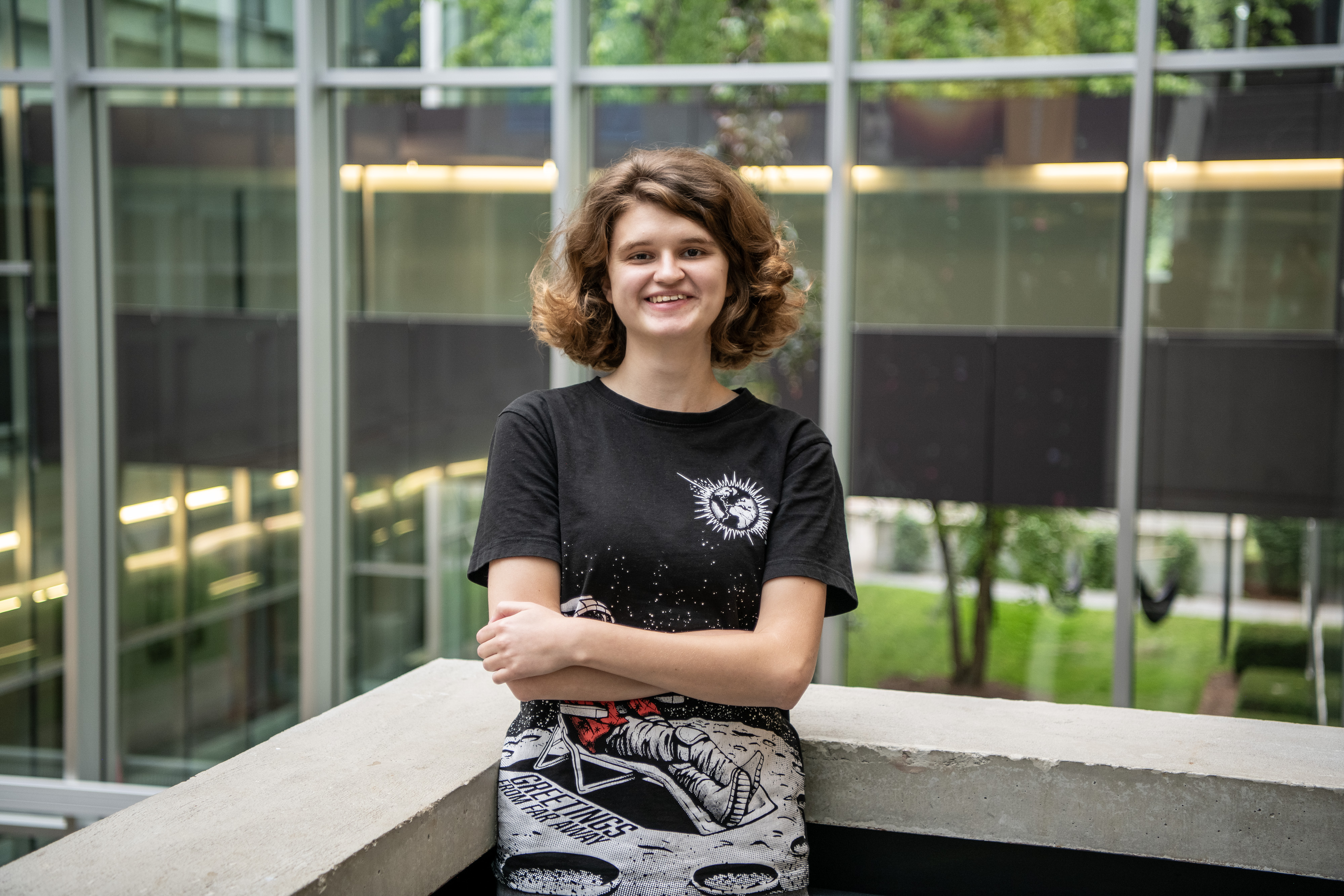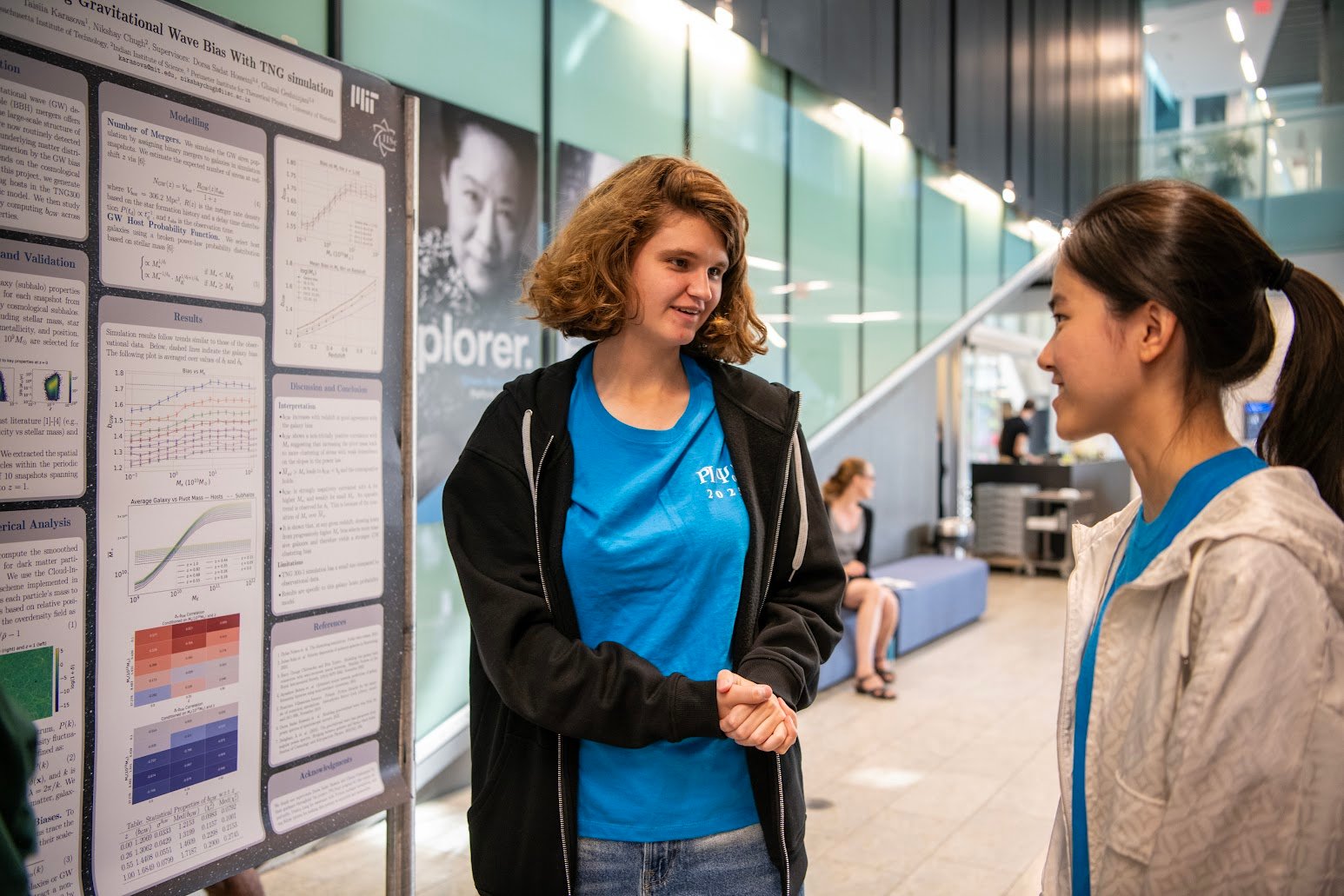Back in May, over 40 students began their journey in PSI Start, a unique undergraduate-to-graduate studies program designed to give aspiring physicists an extra boost. The 10-week virtual program brings them into contact with physicists who guide them through some of the more challenging – and promising – aspects of fundamental physics research.
Of the 40+ participants, 10 exceptional candidates are selected to come to Perimeter for paid PSI Start Internships.
We caught up with two members of the 2025 intern class to find out what they gained from the program – and what comes next.
A greater passion for physics, and new skills to share the excitement
Ananda Thomlinson is a final-year undergraduate student studying physics and math at the University of British Columbia. Thomlinson is no stranger to Perimeter. In 2022, she was the recipient of the Luke Santi Memorial Award, which recognizes a student who embodies the ideals of the Institute and the award’s namesake, Luke Santi.
“In high school, I always dreamed of being an astrophysicist, and that love of physics and theoretical physics continued to blossom in university – especially after visiting Perimeter in my first year of undergrad,” says Thomlinson.
For Thomlinson, the opportunity to study theoretical physics in Perimeter’s unique environment has been nothing short of ‘magnificent.’
“It’s been a treat to be instructed by so many members of the Perimeter community on so many subjects in such a short time,” says Thomlinson. “This is grad-level content that has been made accessible to us. It felt very in-depth, and we were exposed to a lot of different things that I have not had the opportunity to experience as an undergrad.”
Thomlinson is returning to UBC in September 2025 to complete her undergraduate degree in physics and math. She says she will apply to master’s programs in 2026. She’s grateful to have some time to narrow down her interests and digest what she has learned, and to practice new skills she’ll take from the PSI Start internship experience.
“I’ve been developing my coding skills and I’ve really deepened my knowledge of things like electromagnetism and different areas of physics,” she says. She also feels more confident in her ability to communicate with others about physics because engaging with her fellow interns and other researchers has been essential to the Perimeter experience.
“One of the biggest things I’ll take away is confirmation of my passion for this field. My love for physics has only grown since I’ve been here, and I feel even more sure about pursuing theoretical physics in grad school,” says Thomlinson.
Building a career and a community
Taisiia Karasova is originally from Ukraine and credits a 2011 exhibition on the 50th anniversary of the first human space flight for sparking her early interest in space. In high school, physics and math were the subjects she found most interesting. She began her undergraduate degree at the Moscow Institute of Physics and Technology, but when she had to evacuate, her studies took her first to the Netherlands and then to MIT.
Before coming to the Institute, Karasova had heard about how Perimeter was special. Now that she’s experienced it in person, she appreciates how the space was designed with physicists in mind.
“This place is not just work, it’s also a community,” she says. “It was made with intent, so people actually want to spend time here, and there are lots of places to work and relax.”
Karasova says this summer school is different from other summer schools she has experienced. For starters, it’s much more than just lectures.
“With the PSI Start program there is a huge practice component, and we’ve had an opportunity for the knowledge to settle and to become more comfortable with the concepts,” she says.
She notes the opportunity to work with large data sets and programming to be particularly valuable as she considers her future graduate work.
“Right now, I am planning to go into cosmology or extragalactic astrophysics, and those fields use large data sets,” she says. “This experience, and the numerical methods of processing that we used in my final project for the course, are helpful and something I will use in my future career.”
Karasova is returning to MIT in Fall 2025 to complete her undergraduate degree and decide her next steps, which will likely include applying to master's programs.
In addition to the new skills and experiences she acquired in the program, she also values having many new connections in the theoretical physics.
“As a group of interns, I think we formed some good friendships and I hope these connections will continue after the program ends,” she says.
À propos de l’IP
L'Institut Périmètre est le plus grand centre de recherche en physique théorique au monde. Fondé en 1999, cet institut indépendant vise à favoriser les percées dans la compréhension fondamentale de notre univers, des plus infimes particules au cosmos tout entier. Les recherches effectuées à l’Institut Périmètre reposent sur l'idée que la science fondamentale fait progresser le savoir humain et catalyse l'innovation, et que la physique théorique d'aujourd'hui est la technologie de demain. Situé dans la région de Waterloo, cet établissement sans but lucratif met de l'avant un partenariat public-privé unique en son genre avec entre autres les gouvernements de l'Ontario et du Canada. Il facilite la recherche de pointe, forme la prochaine génération de pionniers de la science et communique le pouvoir de la physique grâce à des programmes primés d'éducation et de vulgarisation.




